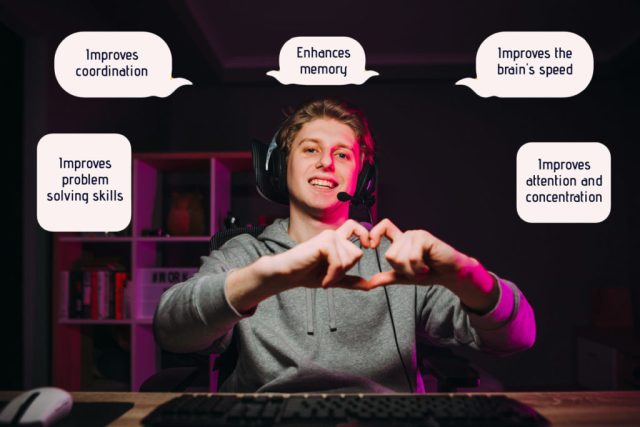For years, video games were dismissed as time-wasters—frivolous entertainment with no real value. But that perception is rapidly changing. Today, researchers, educators, and even corporate trainers are looking at games not just as play, but as powerful tools for learning and cognitive development.
From strategy-based games that challenge your planning skills to fast-paced action titles that sharpen reflexes, video games might just be doing more for your brain than you realize.
Problem Solving in Real-Time
Ever tried to complete a quest in The Legend of Zelda or build a working circuit in Minecraft? You’ve probably had to make dozens of decisions in minutes, analyze trade-offs, and test hypotheses on the fly. These aren’t just game mechanics—they’re exercises in critical thinking and systems analysis.
Puzzle and strategy games like Portal, Civilization, or even mobile apps like Monument Valley require players to spot patterns, predict outcomes, and find creative solutions—skills that are directly transferable to real-world scenarios.
Multitasking and Focus
Games often require players to track multiple variables at once: map awareness, inventory management, team coordination, and objectives. In action-heavy games like Overwatch or Apex Legends, the ability to stay focused under pressure and prioritize tasks is critical.
Studies have found that frequent gamers may have improved working memory, spatial awareness, and even task-switching abilities compared to non-gamers. That’s not just useful in a game—it’s valuable in work and life, too.
Building Soft Skills: Communication, Empathy, Leadership
Multiplayer games are fertile ground for social interaction. Whether you’re leading a raid in World of Warcraft or coordinating a heist in GTA Online, you’re practicing communication, leadership, and emotional intelligence.
Interestingly, even text-based and role-playing games contribute to empathy development. Making moral decisions in narrative games—deciding whether to help or harm characters—engages the same neural pathways involved in real-life decision-making.
And in the world of competitive gaming, where community dynamics and team synergy matter, platforms like multibet88 reflect how collaboration and competition can coexist in dynamic and rewarding ways.
Gamification and the Future of Learning
Educators and psychologists are increasingly using gamified systems to teach languages, math, science, and even history. Apps like Duolingo and Kahoot! apply game mechanics to real educational content, making learning fun and habit-forming.
This approach isn’t limited to schools. Corporate training modules, military simulations, and even healthcare rehabilitation programs use games to improve retention and engagement.
Conclusion
It turns out, playing video games might not be the brain-numbing experience critics once claimed. In fact, if approached mindfully, it can be an engaging way to develop a surprising range of skills—both cognitive and interpersonal.
So the next time someone scoffs at your gaming habit, you can remind them: you’re not wasting time—you’re training your brain.




